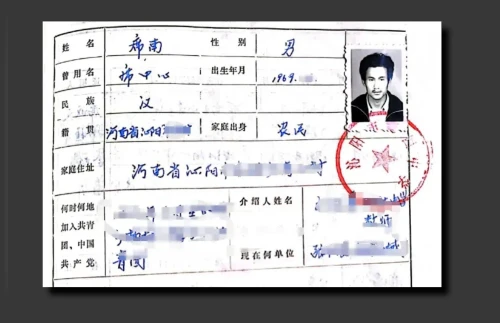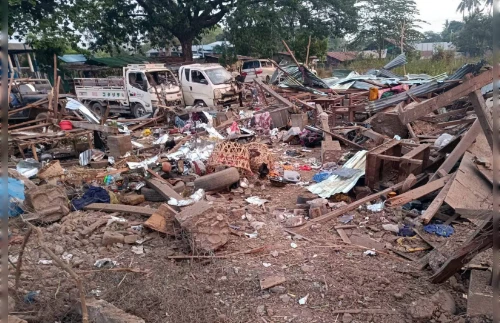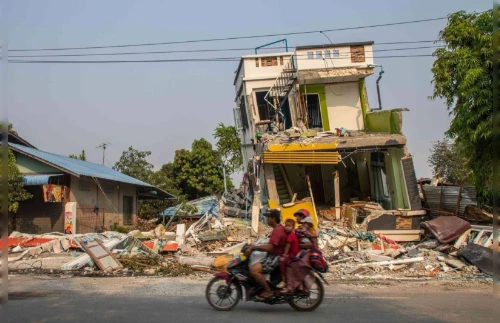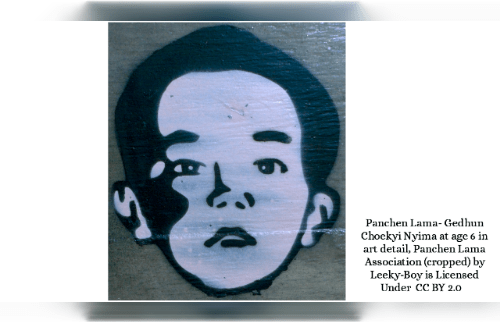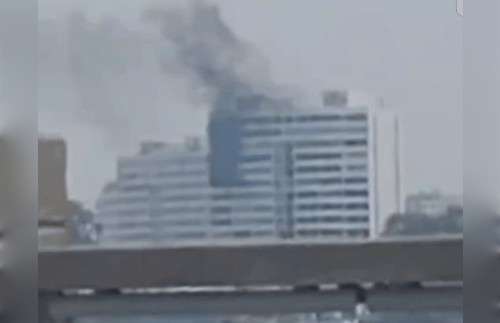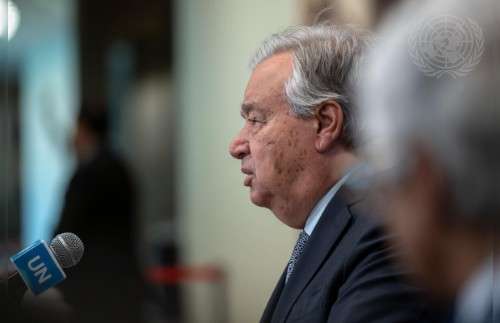Fast-growing fuel costs made residents of an apartment complex in Sinuiju city think twice about seeking help.
By Kim Ji-eun for RFA Korean
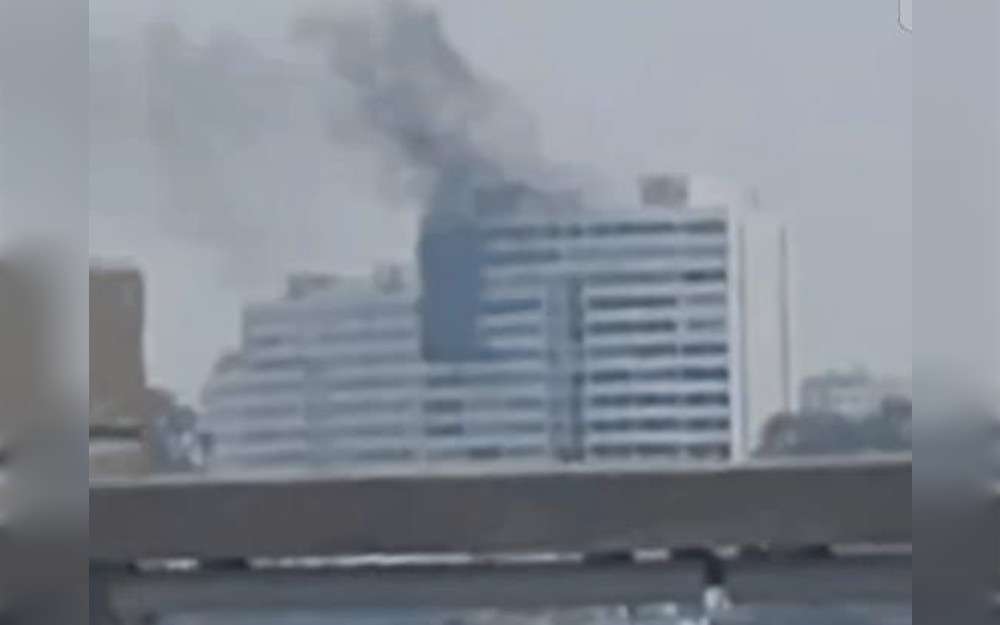
A fire that broke out in an apartment complex in North Korea’s Sinuiju city spread to neighboring homes, destroying over 10 units, after residents hesitated to call for help due to the high costs of dispatching fire trucks, two sources inside the region told Radio Free Asia.
Rather than contact the fire brigade, residents tried to put out the fire themselves after a group of school children accidentally set off the blaze around 1 p.m. on April 27, the sources told RFA on the condition of anonymity for fear of reprisals.
“People hesitated to make the call because they couldn’t afford it,” said the first source, a resident of Sinuiju city near the border with China. “By the time the firefighters arrived, the flames had already spread to neighboring units and the rooftop,” he added.
While fire services in North Korea are officially free, chronic fuel shortages, outdated equipment, and underfunded emergency services have led local authorities to demand payment for dispatches, shifting the financial burden onto citizens.
Local residents in North Korea are required to cover fuel expenses for emergency vehicles, including fire trucks, said the sources.
They currently have to pay 500,000 North Korean won (or around US$50) for fuel when a fire truck is dispatched – a nearly 16-fold increase from 30,000 won they paid last year.
“Most of the apartment complexes consist of about 30 households, so it is not easy to raise 500,000 won from residents,” said the first source.
The April 27 fire that started on the seventh floor of the 12-storey apartment building spread to the topmost floor, with the fire trucks arriving at the scene only after about 10 out of the total 120 units had been burned down, the sources said.
Though no injuries or deaths were reported, the latest incident has sparked outrage among locals, who say the system fails to serve its purpose of responding promptly to help when a fire breaks out – unless they can pay for the fuel themselves.
“People are asking what is the use of the fire department if it can’t respond without money,” a second source said.
Edited by Tenzin Pema.
“Copyright © 1998-2023, RFA.
Used with the permission of Radio Free Asia,
2025 M St. NW, Suite 300, Washington, D.C. 20036.
https://www.rfa.org.”





